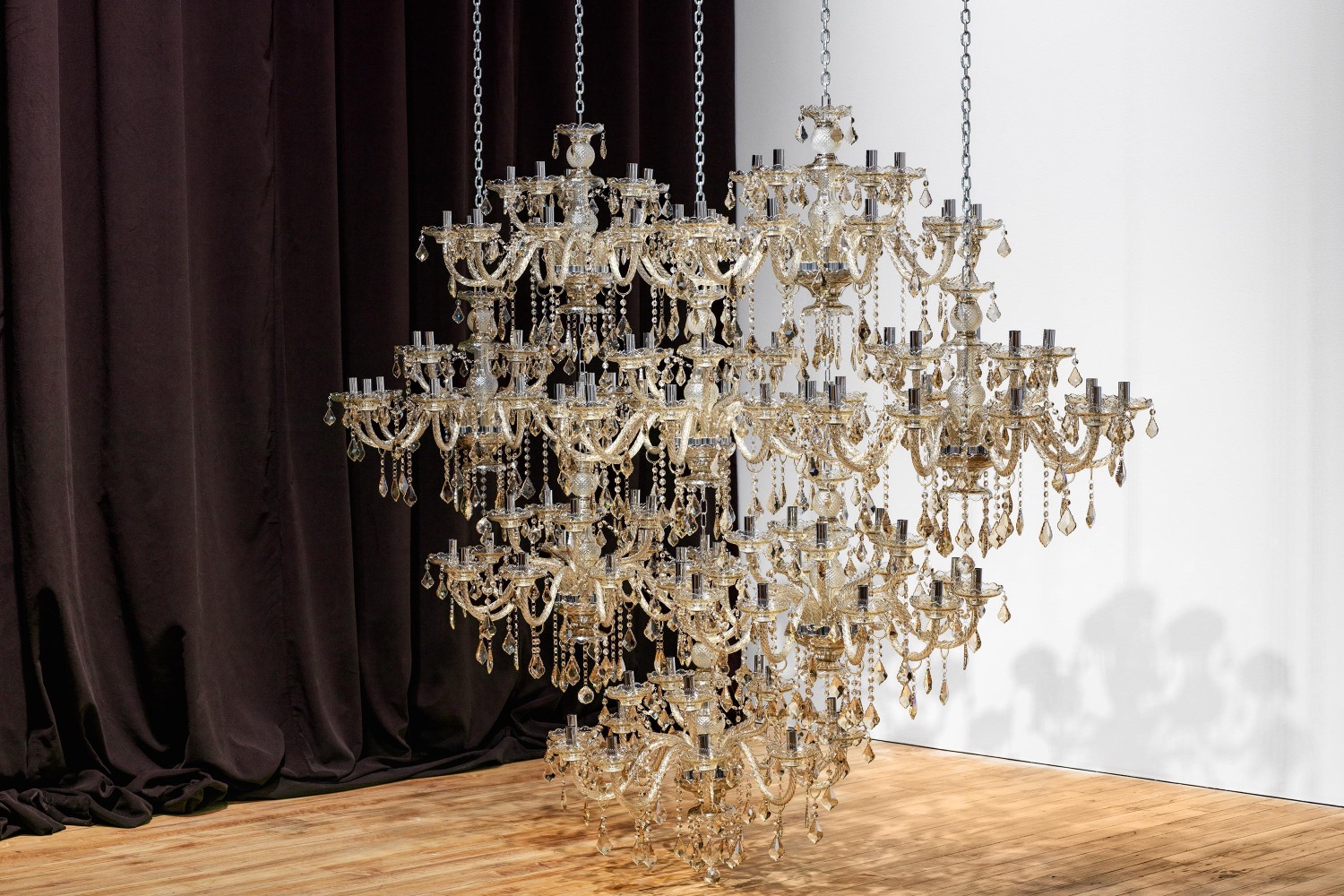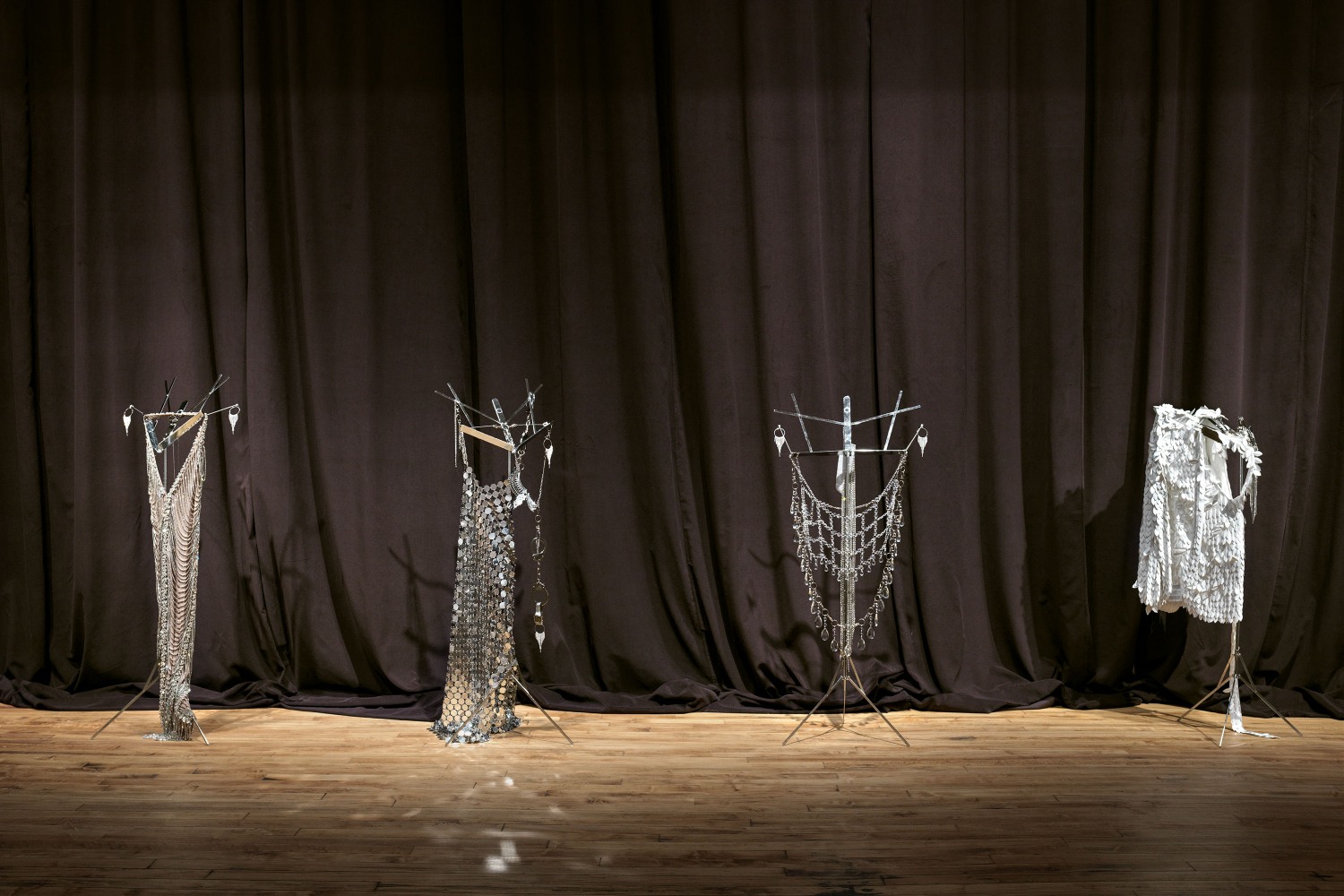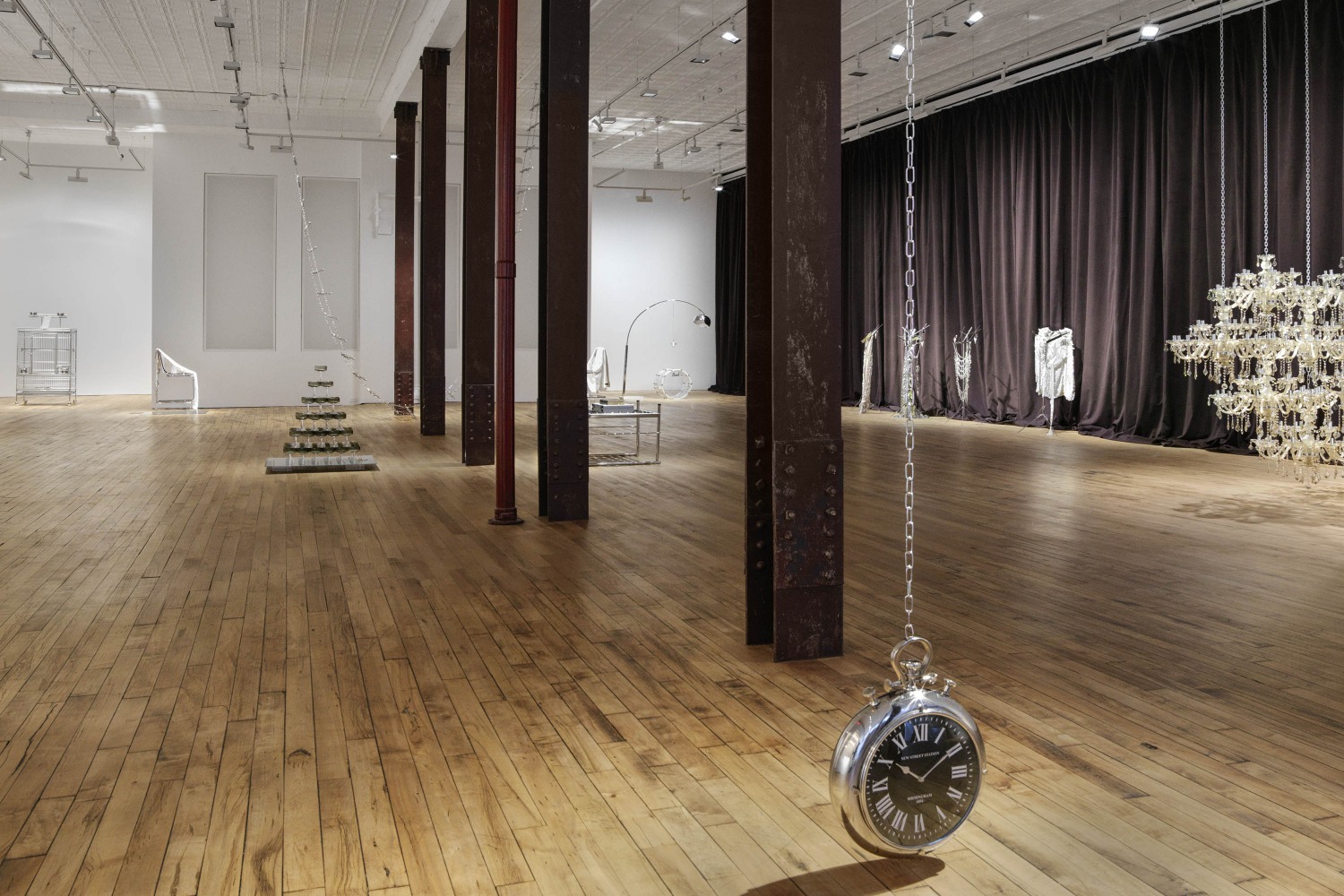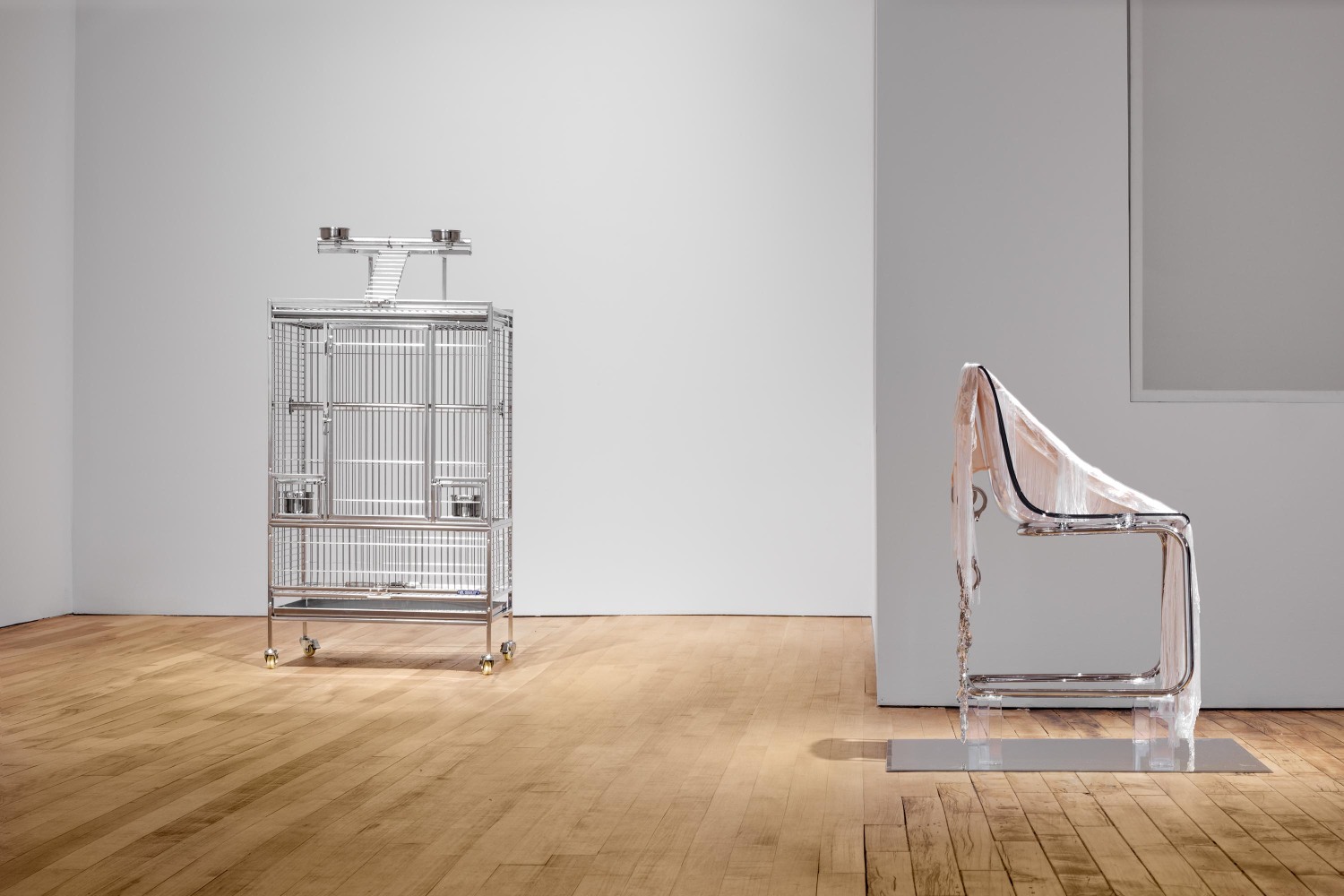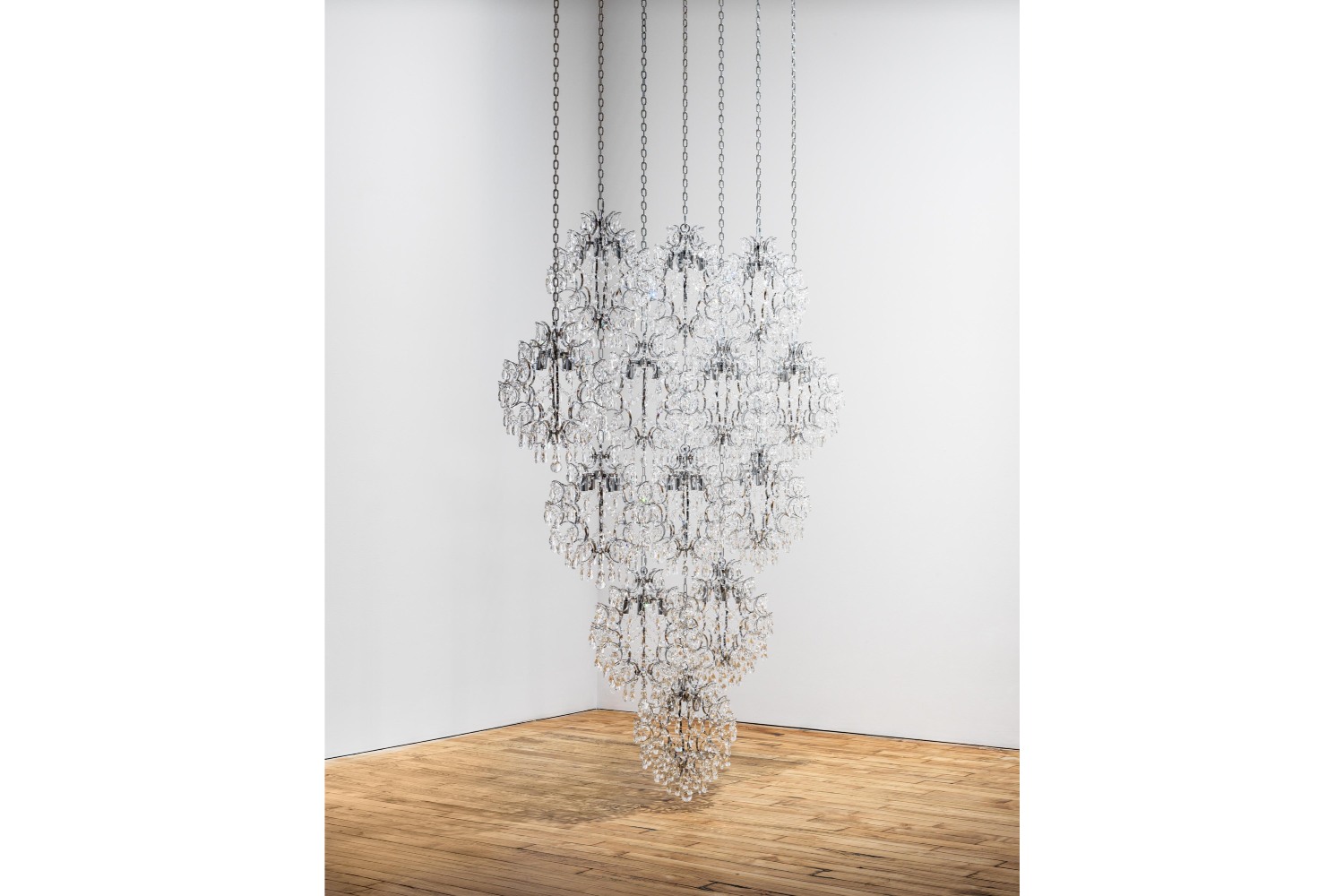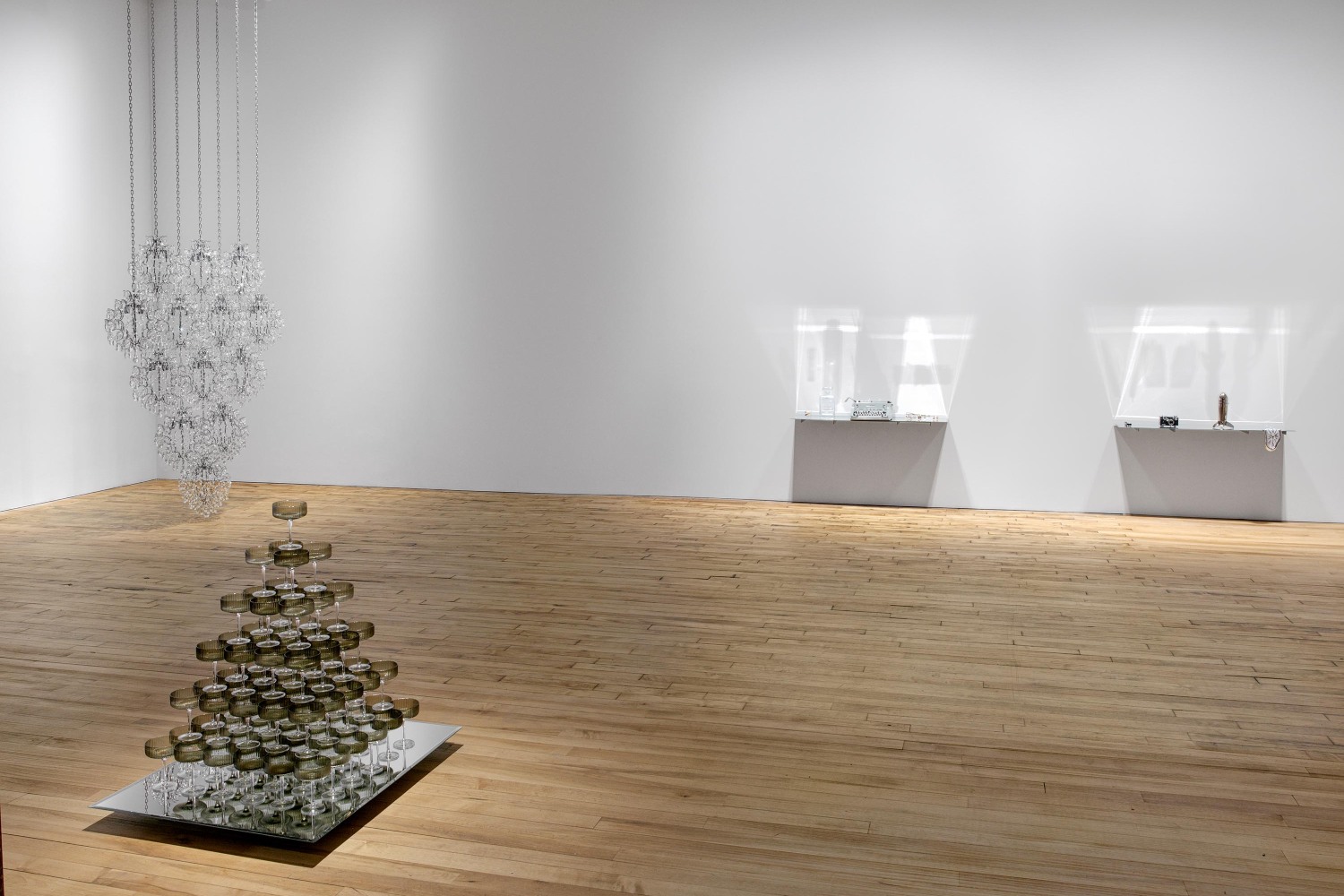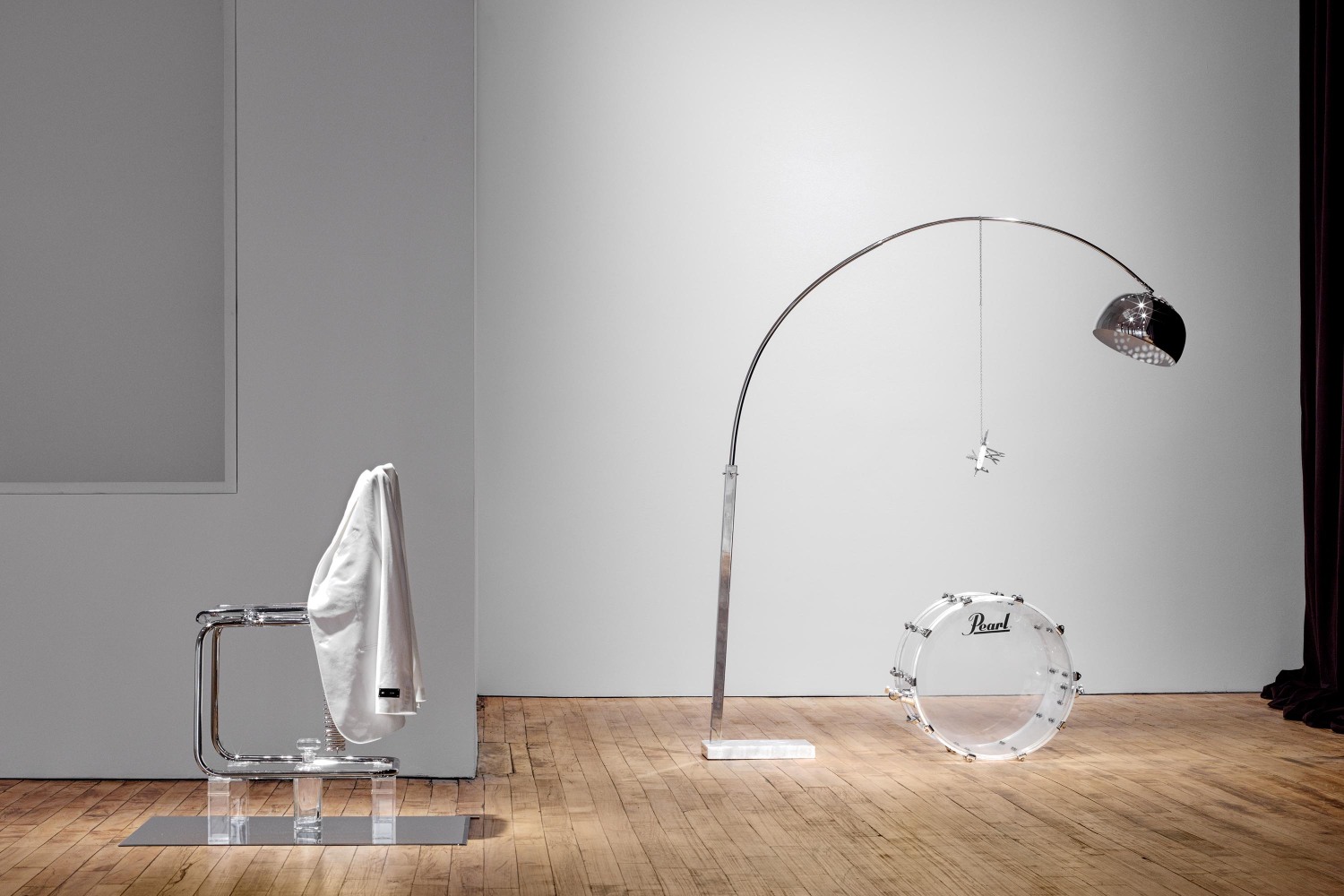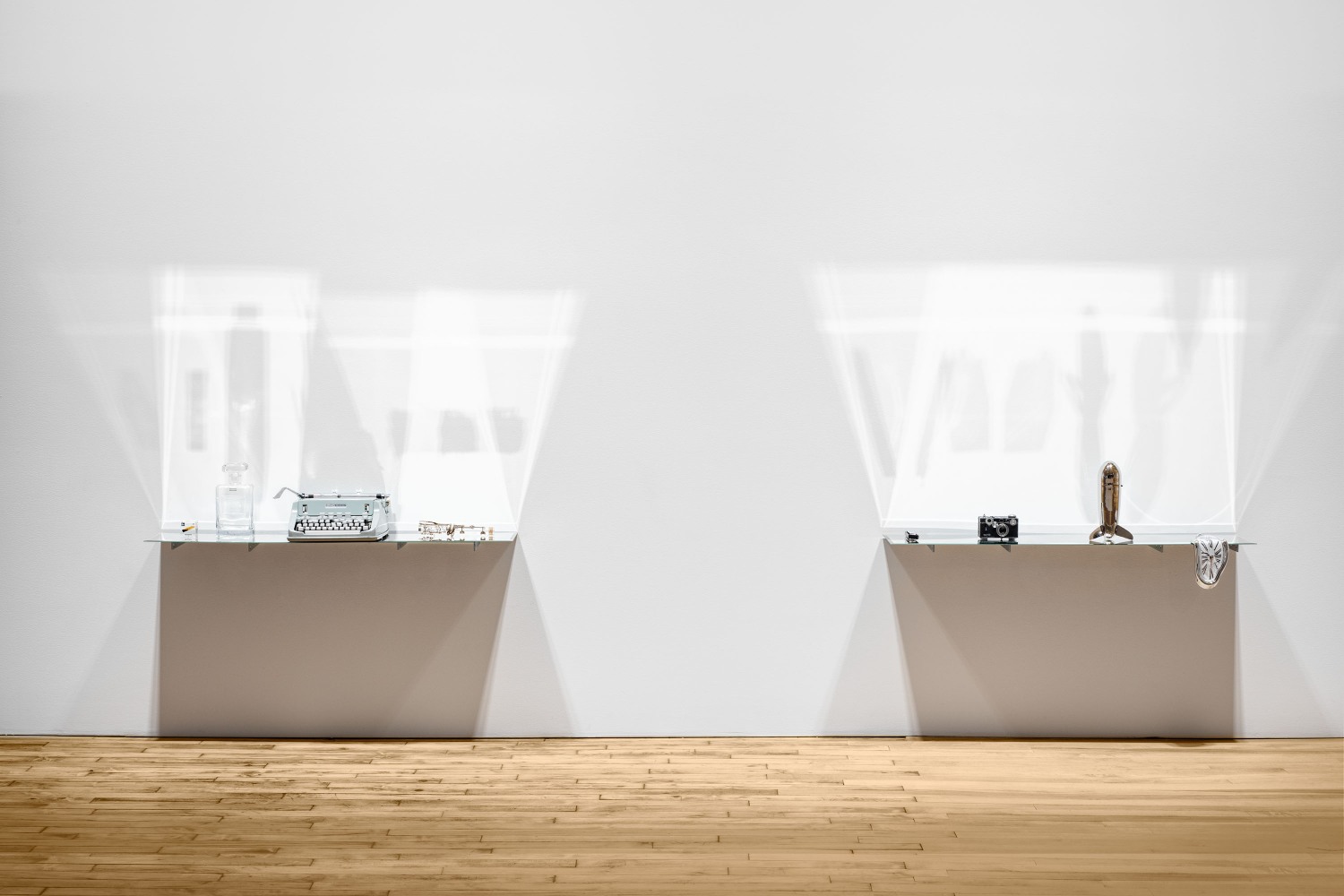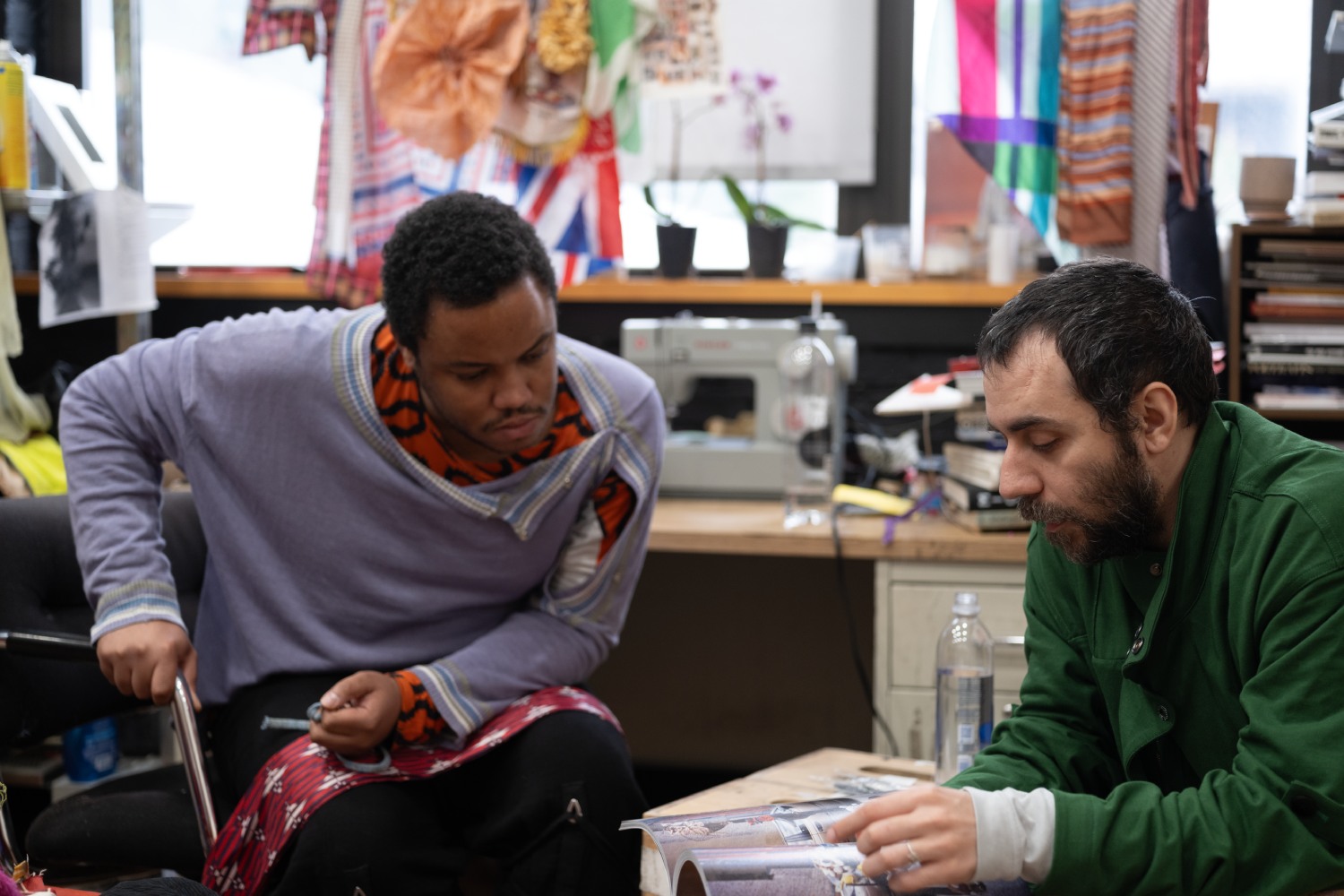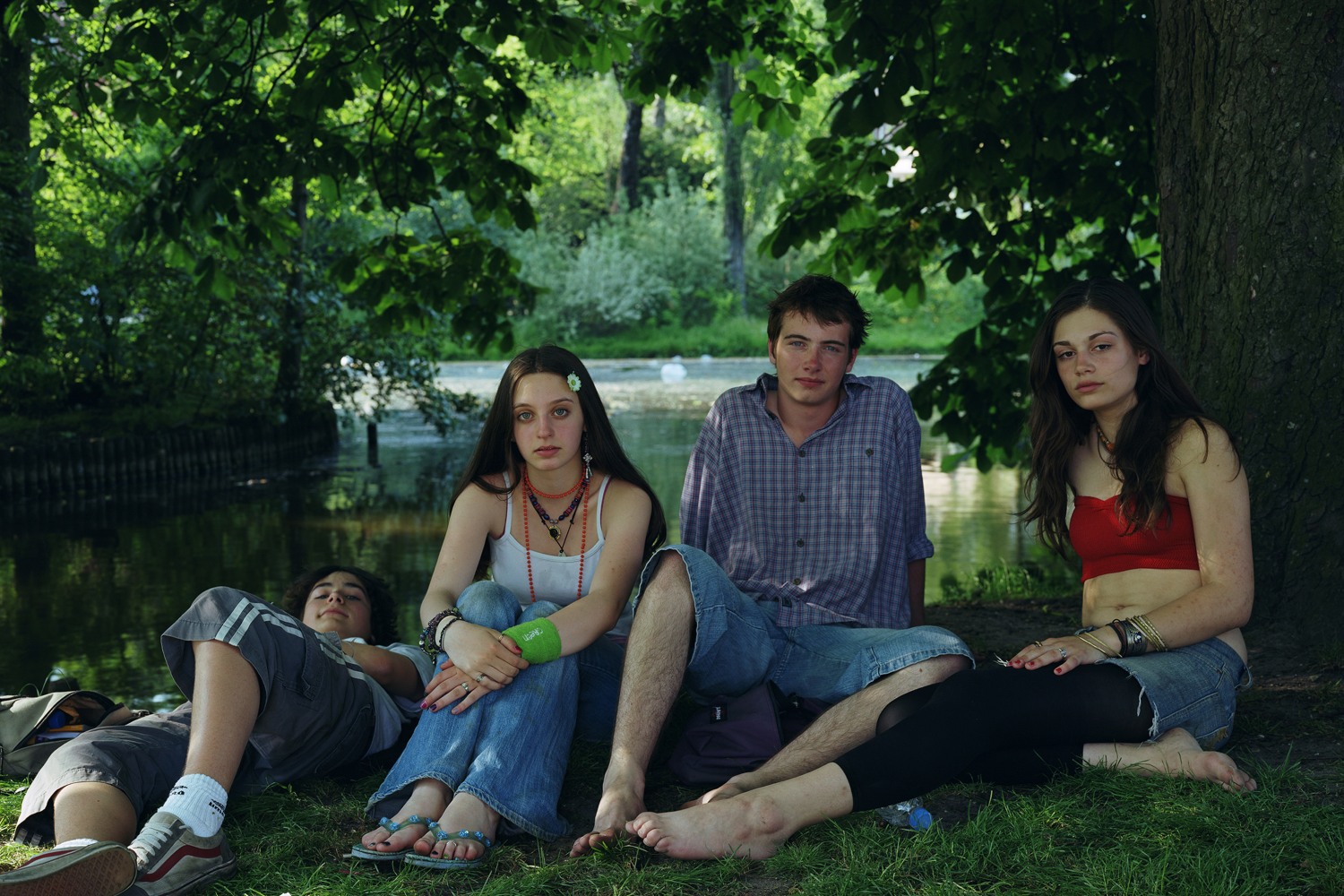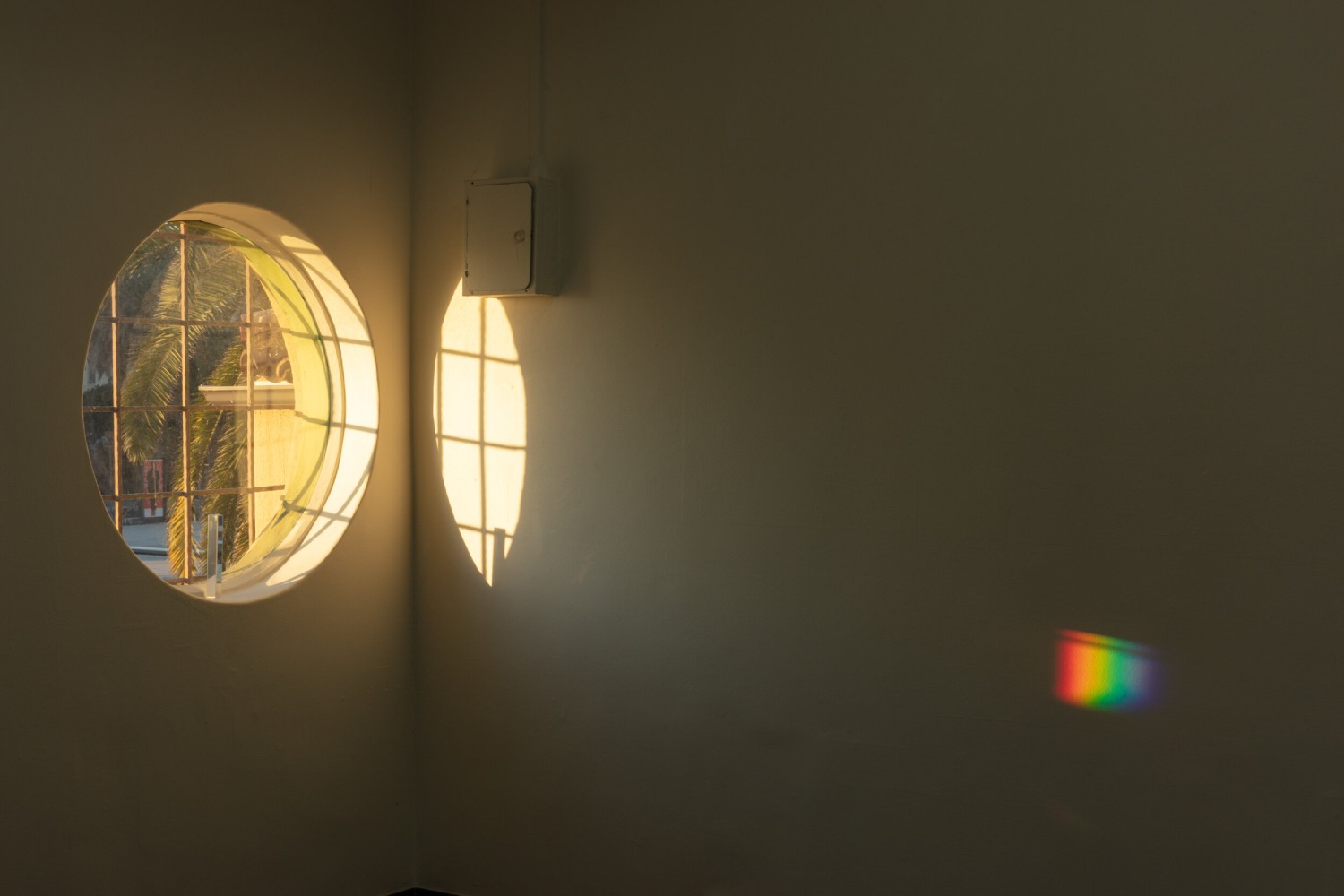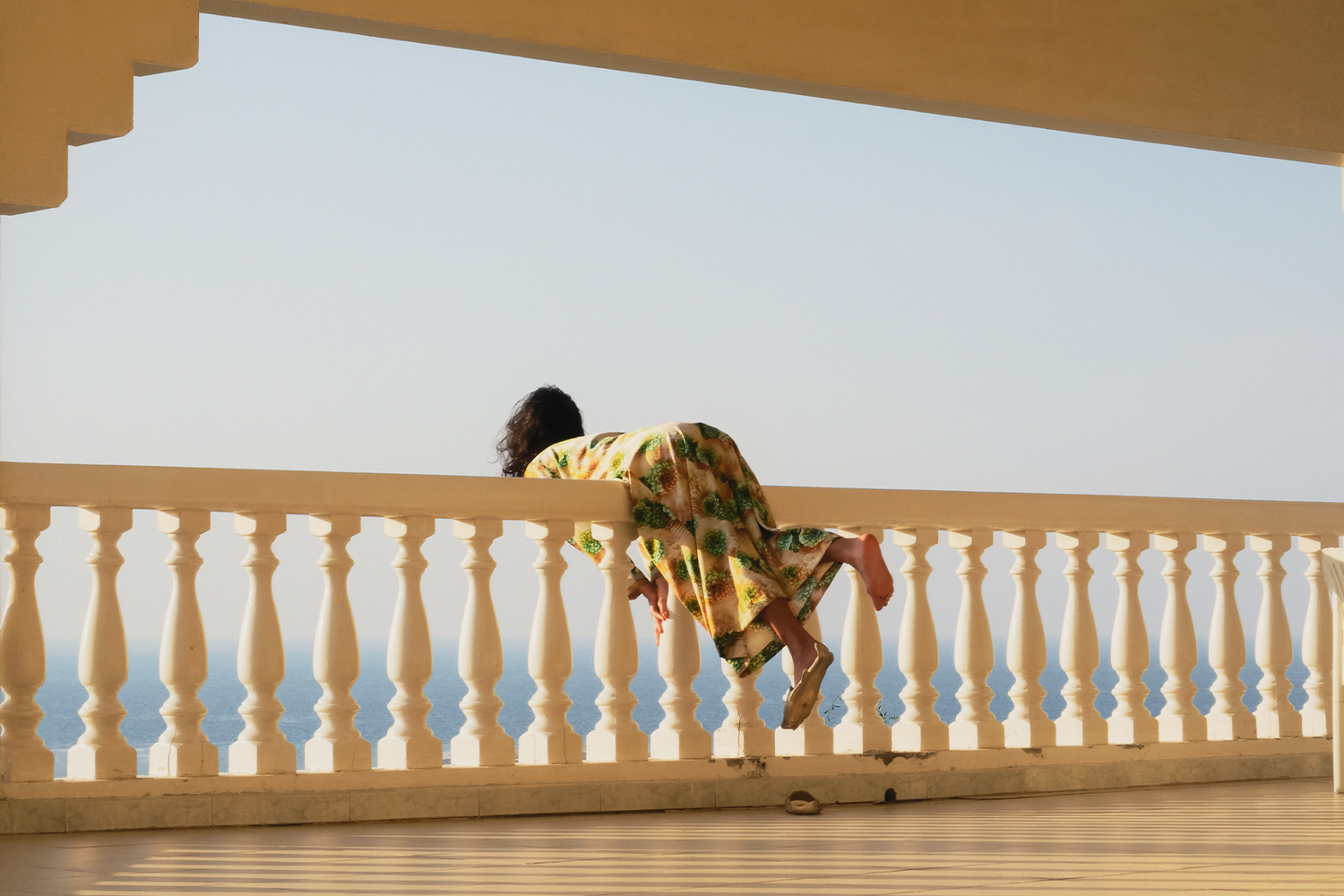Kayode Ojo’s signature glitter finds its largest stage yet at 52 Walker, where one wall of the sprawling 3,385-square-foot space is dressed in a floor-to-ceiling black velvet curtain, injecting added theatricality into a series of works already dripping with mise en scène. An oversized pocket watch hangs in between two of the I-beam columns that order the gallery’s interior. It’s suspended from a silver chain, as are crystal chandeliers and gleaming flutes arranged like a hanging ladder that smiles. These dangling sculptures activate the pronounced verticality of the room, while some of the more low-tothe-ground assemblages reward a meticulous attention to detail.
There’s a tooth in the bowl of an otherwise empty coupe glass, one of dozens stacked to form a pyramid. It’s easy to overlook but it’s there, served up in the stemware, a human molar, discolored, maybe from a dead nerve. This is something Ojo hasn’t done before and reads as part comment on authenticity, part serial killer trophy.
For the most part, though, the show, titled “EDEN,” builds on a formal vocabulary for which the American artist has become known, and marks the latest collaboration between Ojo and 52 Walker director Ebony L. Haynes, who curated the artist’s first New York solo exhibition at Martos Gallery in 2018. Each of the seventeen works in this new show is composed of consumer objects in some precarious arrangement. This is Ojo’s unique style of hyphenated ready-mades, prefab manufactured goods assembled on-site without adhesives. A stainless-steel bird cage houses a pistol (one of two guns in the show). From a knockoff Arco lamp a Victorinox Swiss army multi-tool hangs, knives out, suspended ominously over a Pearl drum, the taut clear acrylic of which it’d likely pierce, depending on how it fell. The tensions of these arrangements mirror the anxieties of class, taste, and aspiration traced by the objects themselves, many of them cheap commodities suggesting ersatz glam. We’re signaled to consider the theater of value with material lists that faithfully reproduce brand and product names. The Wassily esque chair is by Baxton Studio. The guns are prop pistols and the handcuffs are intended for role play, another two types of fakes. Throughout, there are surfaces that tease transparency and others that deflect. Items include fetishized cameras, whiskey decanters, rhinestone chokers, sequined mini dresses, clear boxes, music stands, as well as a bible, typewriter, chessboard, Surrealist melting clock, and an acrylic cube displaying the element bromine (atomic number 35).
Walking through the Tribeca gallery (which David Zwirner opened in 2021 to offer more experimental programming than their Mid- and Uptown fare) the title of a poem from Megan Fox’s new book (yes, the Transformers actress wrote a book, Pretty Boys Are Poisonous: Poems, 2023) repeats in my mind like a refrain: “it’s giving Patrick Bateman.” How this status-obsessed fictional serial killer circulates as meme, and this specific instance in which an A-list hot girl is reaching for literary significance while confessing tabloid-worthy break-up stories, all seems relevant to Ojo’s high-low collisions and his postmodern understanding of subjectivity. It’s “I shop therefore I am” in the age of search-engine optimization, any interiority a performance engineered for the algorithm, the self recontextualized as a scam.
I google “Kayode Ojo” + “Patrick Bateman” and find I’m not the first one to make the comparison. Chloe Stead writing for Frieze says all the glass and stainless steel of an earlier Ojo show reminded her of the character’s apartment in the film adaptation of American Psycho (the infamous 1991 novel by Bret Easton Ellis, which she misattributes to J. G. Ballard). I’m not trying to be shady to include her error; I feel like it accidentally captures something else about Ojo’s work, its sense of unreliability and misuse born from the surprising ways information and image circulate online. The title of the show, “EDEN,” suggests a yearning for safe haven, a contentment before shame. To look at or use something wrong even when we know better holds a special kind of pleasure. While we can’t go back to a state before knowledge, maybe misuse is a perversion that’s the closest analog to the bliss of return.

